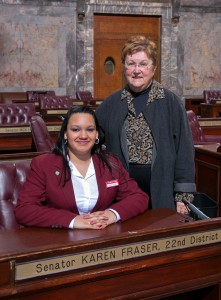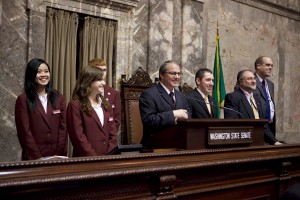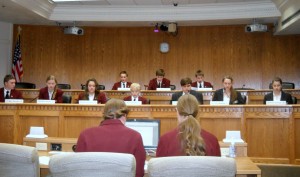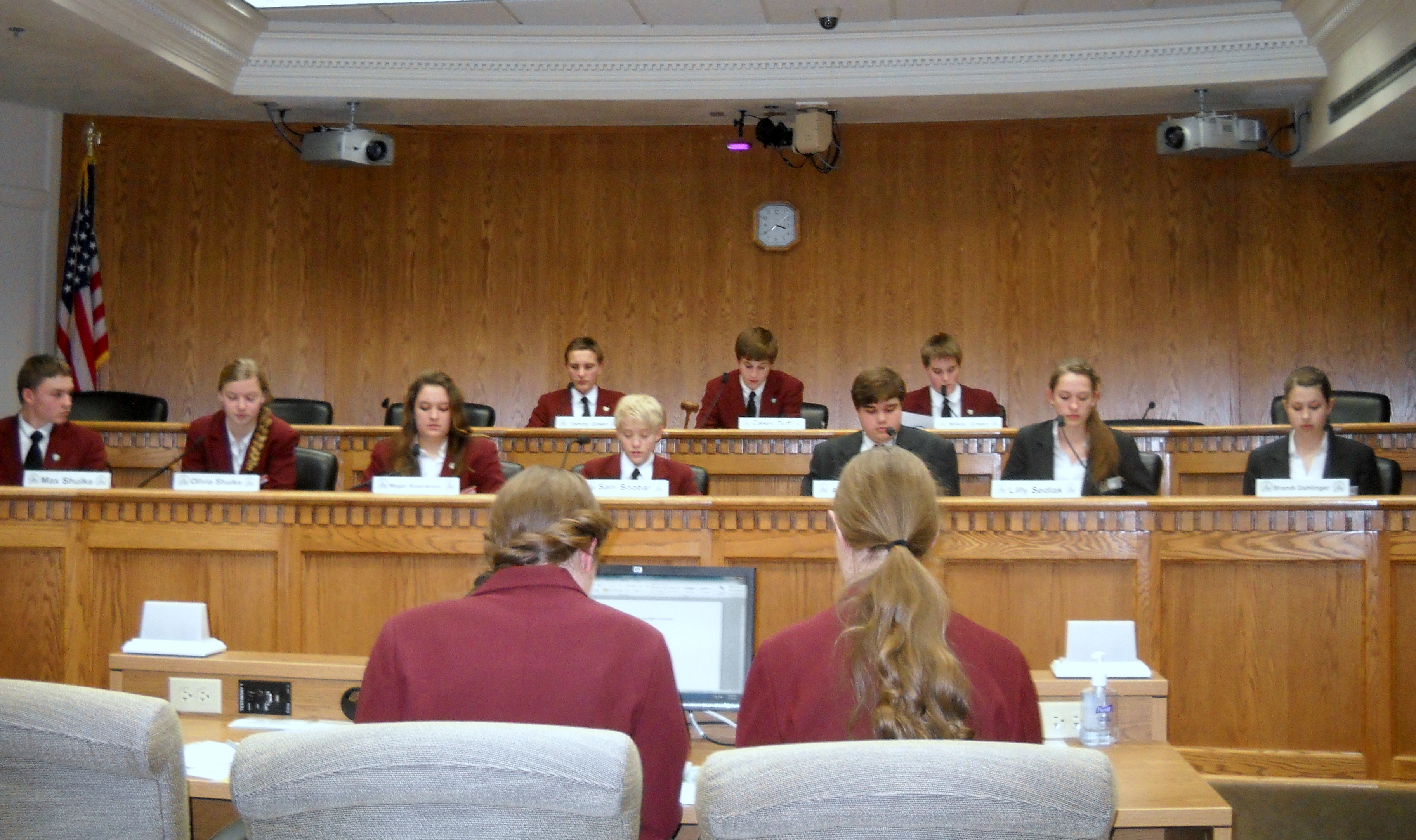Submitted by Eliza Ramsey, Capital High School intern to ThurstonTalk

Every year when the Washington State Legislature is in session, the Capitol Campus can be seen dotted with the dark red or green jackets of the pages.
Pages are students, ages 14-16, from all over Washington state who apply to their Representative or Senator for the chance to come to Olympia for a week to learn about and take part in the legislative process. Pages are divided between the House and Senate; House pages wear dark green sports coats and Senate red. Along with their jackets, pages are expected to dress in white button downs, black slacks and black shoes.
This session, the Senate has between 24-30 Pages each week, and over the course of the 15 weeks approximately 400 will report to work for the Senate. If an additional 30-day session is needed, Pages with flexible schedules, are asked to return to help staff the Capitol. Pages from out of town often stay with family or friends, or choose to board with a local family for the week. Pages also receive a stipend to cover cost of clothing and boarding.
Karen Fraser, 22nd District Senator, which covers northern Thurston County, is a big supporter of the program. “It gets students acquainted with the state legislative process at an early age. It’s an introduction to democracy and the legislative process. It shows how it operates in our country, and how we make decisions about how as we the people are going to live together.”
During their time in Olympia, Pages work 8 a.m. to 5 p.m. delivering messages and supplies, staffing the Senate floor, meeting with legislators and attending Page school. Senate Page Esther Polluck of Puyallup reports that “the best thing is working the floor [of the Senate], being a part of that is amazing.”

When Pages are on the Senate floor, where Senators debate and vote on legislation, they are tasked with handing out papers and delivering messages from staff. This year, with arrival of several Freshman senators, the Pages have the unique task of helping with the tradition of each new senator giving a gift from their district to the other members.
Page School is based on an award-winning civics focused curriculum. The learning is centered around three big ideas: governing society is a complex process, successful democracies rely on responsible citizens, and government affects our life everyday. “It’s proven itself to be a very good program for education,” said Page Coordinator Bonnie Henderson.
Page teachers Judi Orr and Lisa McGrath introduce students to governmental vocabulary and the process of writing a bill. The program also brings in guest speakers like the Lieutenant Governor Brad Owen and Supreme Court Justice Stephen Gonzalez. Each week concludes with a round of Legislative Jeopardy, where teams of Pages use the knowledge they’ve acquired over to the week to vie for the chance to be named champion.
Throughout the week Pages choose an issue, write a bill and present it in a mock committee hearing. “Most kids choose an issue of significance for them. For example we have some who live on farms in Eastern Washington so they are focusing on wolves,” said Orr. When it comes time to present their bills, Pages go before a panel of their peers, in a very ceremonial, life-like affair. Each has a turn to present their piece of legislation and respond to questions from other Pages roleplaying Senators.
Senate Page Casey Duff of Tumwater addressed reducing carbon dioxide emissions, “My bill offers a $2000 dollar cash bonus to anyone who buys a car that gets better than 45 miles to the gallon.” Like many real-life situations the bill failed to be moved out of committee, in this instance over concerns about feasibility and paying for the program.

While funding for the Page program has been reduced due to the State’s budget situation, no one involved believes it is be a risk of being eliminated. “Budget cuts affect everything. Nevertheless we’re maintaining it. The students provide a really helpful service, delivering messages that need to be delivered rapidly,” said Senator Fraser
The program has a large supportive following. For the most part it’s viewed as great place for students to jumpstart an interest in government, which legislative staff, Senators and Pages alike, hope becomes a lifelong participation.
“Some of my favorite things that have happened are that I’ll run into people here and there around the town doing great things with their lives and they say ‘I was a Page for you.’ It seems to me from these kinds of conversations that it’s a very good foundation for the students,” summarizes Fraser.





















































